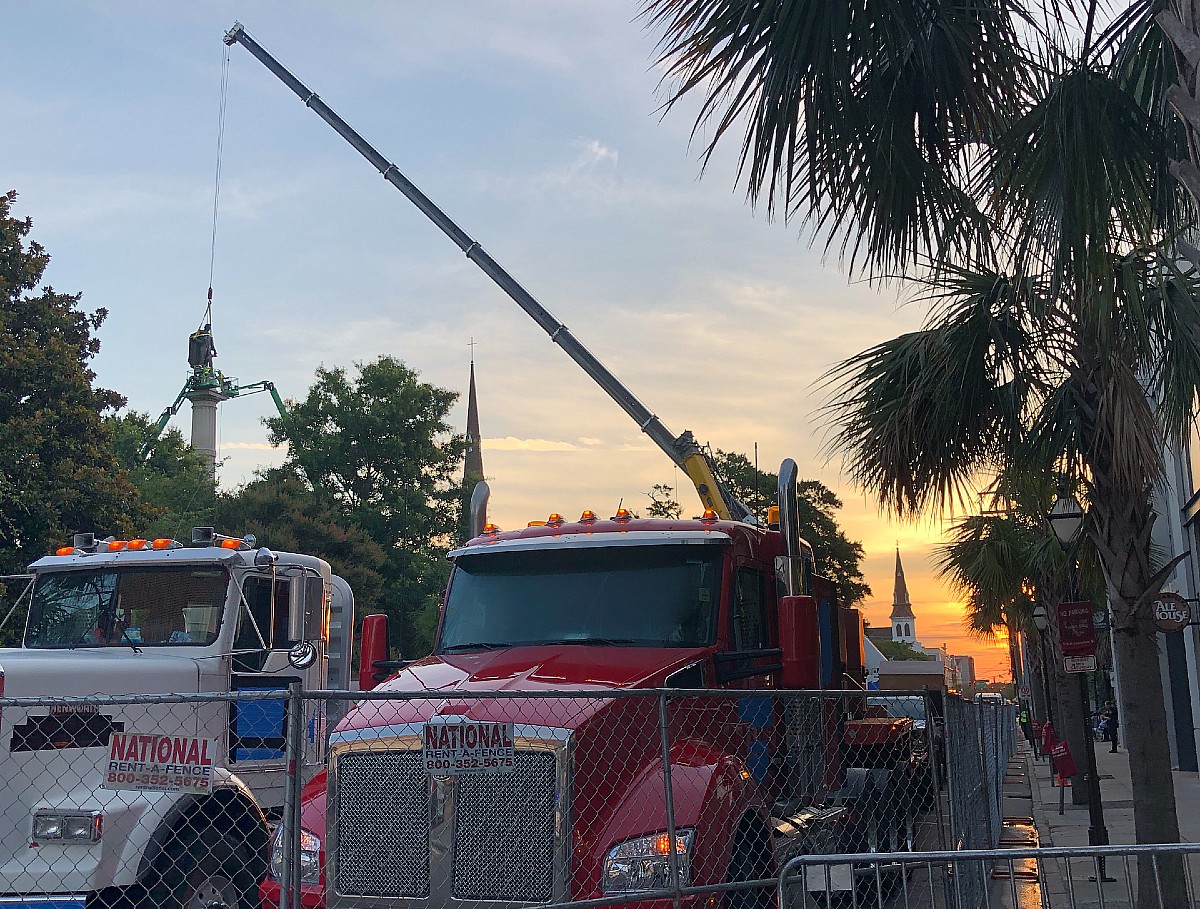
By Kimberly Probolus, exclusive | After nine Black worshippers at Emanuel AME Church in Charleston were murdered by a white supremacist gunman who had previously been photographed with Confederate iconography in 2015, South Carolina swiftly removed the Confederate battle flag from the statehouse grounds. When then-Gov. Nikki Haley explained the decision, she acknowledged that the flag should never have been raised there and described her realization that “people were driving by and felt hurt and pain.”
Today, South Carolina is taking another step in the right direction by recognizing the hurt and pain that the Confederate Memorial State Holiday causes. In a remarkable unanimous vote by the South Carolina Senate, 29 Republicans and 16 Democrats elected to create a floating holiday that would allow state workers to choose when to take time off.
It is noteworthy that the bill’s original intent was to make the Juneteenth federal holiday — which honors the day that formerly enslaved people in Texas learned they were free — a state holiday. Instead, lawmakers decided to eliminate Confederate Memorial Day entirely. The vote is now headed to the S.C. House of Representatives, where elected officials have the power to stop commemorating the May 10 death of Confederate General Stonewall Jackson once and for all.
If passed, Confederate Memorial Day would only be the second memorial removed from the state since the Charleston church massacre — leaving 224 Confederate symbols remaining. Even after the Unite the Right Rally [in Virginia] in 2017 resulted in the death of anti-racist protestor Heather Heyer, South Carolina did not remove any memorials. George Floyd’s 2020 murder sparked the relocation, removal and renaming of 157 memorials — but none of them were in South Carolina. That same year, four schools in Lee County attempted to change their name and take part in a national reckoning over the legacy of slavery. Two years later, changes have not yet been made and renames are still pending.
[UPDATED PARAGRAPH] Preservation laws help to explain why progress has been nonexistent in the state. The 1976 law prohibits monuments or memorials on public property from being “relocated, removed, disturbed, or altered.” What’s more, the law refers to the Civil War as the “War Between the States,” a historically inaccurate term that reinforces the Lost Cause myth and the erroneous belief that the Civil War was fought over state’s rights, not slavery. Reputable historians know that the Civil War was fought over slavery. The law prohibits communities from deciding who and what they want to honor in public space.
Clearly, there is still work to be done. First, South Carolina must lobby to repeal the outdated and draconian preservation law. It is impossible for communities to challenge the racist memorials in their presence when there are laws on the books protecting them. Contact your state representative and tell them that you want communities to have the power to create commemorative landscapes in ways that reflect their values.
Second, use the Whose Heritage? map and database to research whether there’s a Confederate memorial in your community. Contact us if there is a Confederate memorial that’s missing from our data.
Third, refer to SPLC’s Community Action Guide. The text not only provides resources and strategies for identifying and removing Confederate symbols, it also offers advice on the social justice movement and coalition building.
Finally, teach the history of the Civil War honestly and accurately. Learning for Justice’s Teaching Hard History framework provides resources for educators looking to inform students about the legacy of slavery in the United States.
At the SPLC we know that removing Confederate Memorial Day cannot and will not bring back Clementa C. Pinckney, Cynthia Graham Hurd, Susie Jackson, Ethel Lee Lance, Depayne Middleton-Doctor, Tywanza Sanders, Daniel L. Simmons, Sharonda Coleman-Singleton and Myra Thompson. Nor can it erase the legacy of slavery.
However, South Carolina cannot and will not live up to its stated democratic ideals until all Confederate memorials are removed. In the words of [South Carolina] poet Nikky Finney, “Our one and only Civil War is done. /Let us tilt, rotate, strut on. If we,/The living, do not give our future/The same honor as the sacred dead,/Of then and now – we lose everything.”
By passing this law, South Carolina will honor its future and the lives lost in the Charleston church massacre, looking forward to a time when the state’s monuments and memorials truly reflect the state’s values.
Kimberly Probolus is a senior research analyst with the Southern Poverty Law Center’s Intelligence Project, where she researches the history of Confederate monuments and contributes to the “Whose Heritage?” report on public symbols of the Confederacy.


